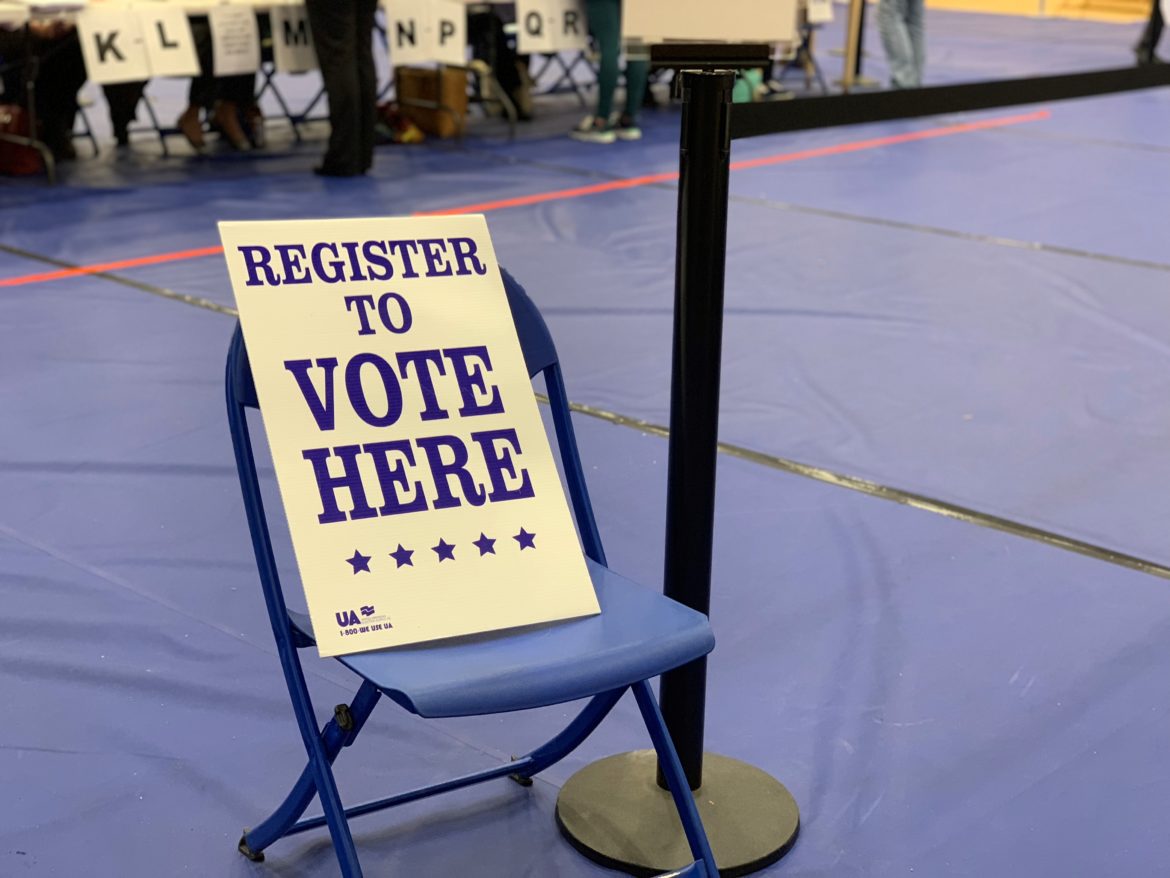By PAULA TRACY, InDepthNH.org
CONCORD – The Republican-backed 2017 voter registration law known as Senate Bill 3 must be struck down, the New Hampshire Supreme Court said, because it violates equal protection guarantees of the state Constitution and places an unreasonable burden on the right to vote.
The legislature had changed the definition of domicile for voting, requiring that people must provide “verifiable evidence” that they intend to be domiciled in the state after the election.
For many college students, particularly from out of state, it presented barriers that other people did not have and it violate a person’s Constitutional rights, the 4-0 order reads.
The case was brought by the New Hampshire Democratic Party and the New Hampshire League of Women Voters against the Secretary of State and the ruling Friday backed what the Superior Court found before the state appealed to the state Supreme Court.
The lead attorney on the state appeal, Gordon MacDonald, then-Attorney General who is now the chief justice of the state Supreme Court, did not participate in this decision.
A copy of the opinion is here https://www.courts.state.nh.us/supreme/opinions/2021/2021027-Secretary-of-State.pdf
The lower court ruled Senate Bill 3, is unconstitutional because it unreasonably burdens the right to vote in violation of Part 1 Article 11 of the New Hampshire Constitution and violates the equal protections guarantees of the New Hampshire State Constitution.
“We affirm the trial court’s ruling that Senate Bill 3 violates” the state Constitution, the high court said Friday.
Because the law must be struck down, the court wrote, they would not address the state’s assertion that the trial court erred in defense of the Senate Bill 3 provision.
Lawmakers were quick to react.
House Speaker Sherman Packard, R-Londonderry, said, “While this outcome is not ideal, it does give the Legislature a renewed sense of purpose as we work together to ensure New Hampshire’s elections remain fair with open transparency. We will continue working on legislative reforms to strengthen and uphold the integrity of our elections.”
Senate Democratic Leader Donna Soucy, D-Manchester, commended the ruling.
“The right to vote is sacred and must be protected. Particularly now, as voting rights are being challenged across the nation and anti-voter bills continue to be worked on in our legislature, we must do everything we can to ensure safe, modern, and accessible elections for every Granite Stater regardless of their age, zip code, or color,” Soucy said. “We are grateful for the reasoned, thoughtful decision of the New Hampshire Supreme Court that led to today’s protection of our democracy.”
Deputy House Democratic Leader David E. Cote, D-Nashua, ranking member of the House Election Law Committee said, “Democrats opposed SB 3 from the moment it was introduced in the legislature because it was clearly an unconstitutional attempt to restrict the ability of qualified voters to vote.
“SB 3 added no security to our elections and unconstitutionally created a separate class of voters with different qualifications. The Supreme Court’s strong, unanimous ruling today, which concluded the state failed to ‘demonstrate that SB 3 is substantially related to an important governmental objective,’ confirms what Democrats said all along – there is no reasonable justification for enacting these unnecessary, confusing obstacles to the voter registration process,” Cote said.
House Majority Leader Jason Osborne, R-Auburn, wrote in a statement that he was disappointed by the ruling.
“New Hampshire consistently has one of the highest voter participation rates in the country and I am fully confident that SB 3 would not have changed that. Every election we have several races that are decided by just a handful of votes, so it is imperative that we ensure every ballot cast is by an eligible voter,” Osborne said.
Election Law Chair Rep. Barbara Griffin, R-Goffstown, wrote, “This decision is disappointing in light of the contrary finding from the Supreme Court of the United States in Brnovich v. DNC that the mere requirement of proving an individual has the constitutional standing to vote in an election is not unduly burdensome. We will analyze the details of this case as we chart our path to ensuring our elections are fair, transparent, and honest.”






